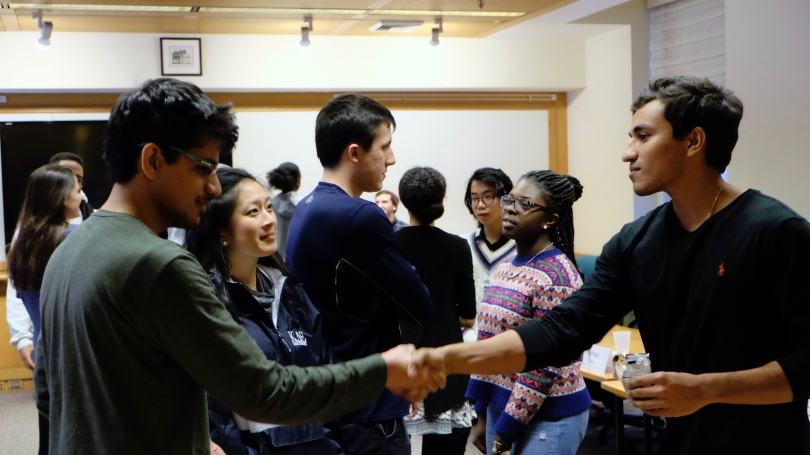
Menu
- Public Policy
- Leadership
- Funding
- News & Events
- About the Center
Back to Top Nav
Back to Top Nav
Back to Top Nav
Back to Top Nav
A better intercultural competence can help us act as a bridge between cultures and be global citizens. A start to improve in any area is finding out where we stand now and where we want us to be. After week one at Rockefeller Global Leadership Program, I gave the Self Assessment with IDI. I responded to a 50-item questionnaire that evaluated my intercultural competence in terms of my cross-cultural goals, the challenges I faced while navigating cultural differences, incidents I encounter around cultural differences and my techniques to handle them.
The session was led by Vincent Mack and Amy Newcomb, which included group discussion, role-play, and a presentation. The Intercultural Development Continuum stretches from a monocultural mindset to an intercultural one. The phases on IDI Scale are denial, polarization, minimization, acceptance, and adaptation. At the end of the session, the cohort came back together and was informed about the group's perceived and actual place of on the IDI Scale. An important realization was that l over-estimated my intercultural competency and had a difference between my actual and perceived score on the scale. This human tendency to over-estimate our capability motivates us further improve our intercultural competence and move improve our actual IDI score.
After hearing about these phases in detail, I had a 45-minute individual discussion with Vincent to get personal feedback on my individual performance and create goals for moving forward on my IDI Scale. Moving further ahead in my IDI Scale will help me when I study, work or travel in other countries. I look forward to future RGLP sessions and achieve my goals to gain intercultural competence and become a global citizen.
Submitted by Prince Verma '16, RGLP Participant
The views and opinions expressed here are the author’s own and do not necessarily represent the views and opinions of the Rockefeller Center or constitute an endorsement by the Center.